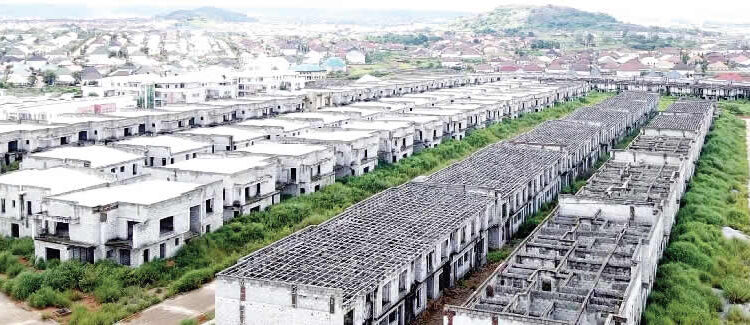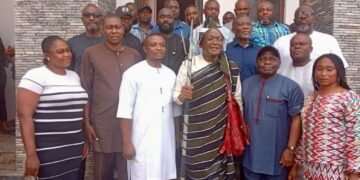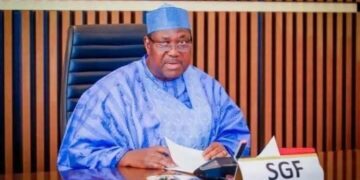Court documents filed by the Economic and Financial Crimes Commission (EFCC) have connected former Central Bank of Nigeria (CBN) Governor Godwin Emefiele to a massive property in Abuja consisting of 753 duplexes and other apartments in the Cadastral Zone. The EFCC announced on Monday the recovery of this property, which is the largest single asset it has seized since its establishment in 2003. This recovery followed a ruling by Justice Jude Onwuegbuzie of the FCT High Court on December 2, 2024.
According to the EFCC’s filings, the property, spanning 150,500 square meters in Lokogoma District, was traced back to Emefiele during an ongoing investigation into alleged fraud carried out during his tenure at the CBN. Emefiele is facing multiple charges in three separate cases. He is accused of procurement fraud, forgery, and involvement in a large-scale fraud involving billions of dollars and naira. He also faces allegations related to the approval of printing large sums of currency.
The EFCC’s investigation revealed that Emefiele and his associates engaged in extensive fraudulent activities, including accepting kickbacks in exchange for foreign exchange allocations. It also identified several properties, including the 753-duplex estate, suspected to have been acquired using proceeds from these unlawful activities. The EFCC traced the documents for the Abuja property to one of Emefiele’s associates, Ifeanyi Omeke, whose office was searched in September 2024. Investigators found that the property had been abandoned and guarded only by a security officer since June 2023, following Emefiele’s arrest.
Further investigation showed that the estate, originally intended for mass housing development, was purchased for N2.2 billion using three companies. Each company paid a portion of the amount, and the directors were arrested as part of the investigation. The EFCC asserts that the funds used for the purchase were illicit, acquired through corrupt practices, kickbacks, and abuse of office.
On November 1, 2024, the court ordered the temporary forfeiture of the property, and on December 2, it granted permanent forfeiture to the Federal Government, as no one challenged the interim order. The EFCC has since defended its decision not to disclose the identities of the property’s original owners, explaining that the proceedings were in line with civil forfeiture laws.
Despite attempts to reach Emefiele’s legal team for comment, they have not responded. EFCC spokesman Dele Oyewale defended the agency’s actions, emphasizing that the investigation is ongoing and that revealing the identities of the involved parties prematurely would be unprofessional.






